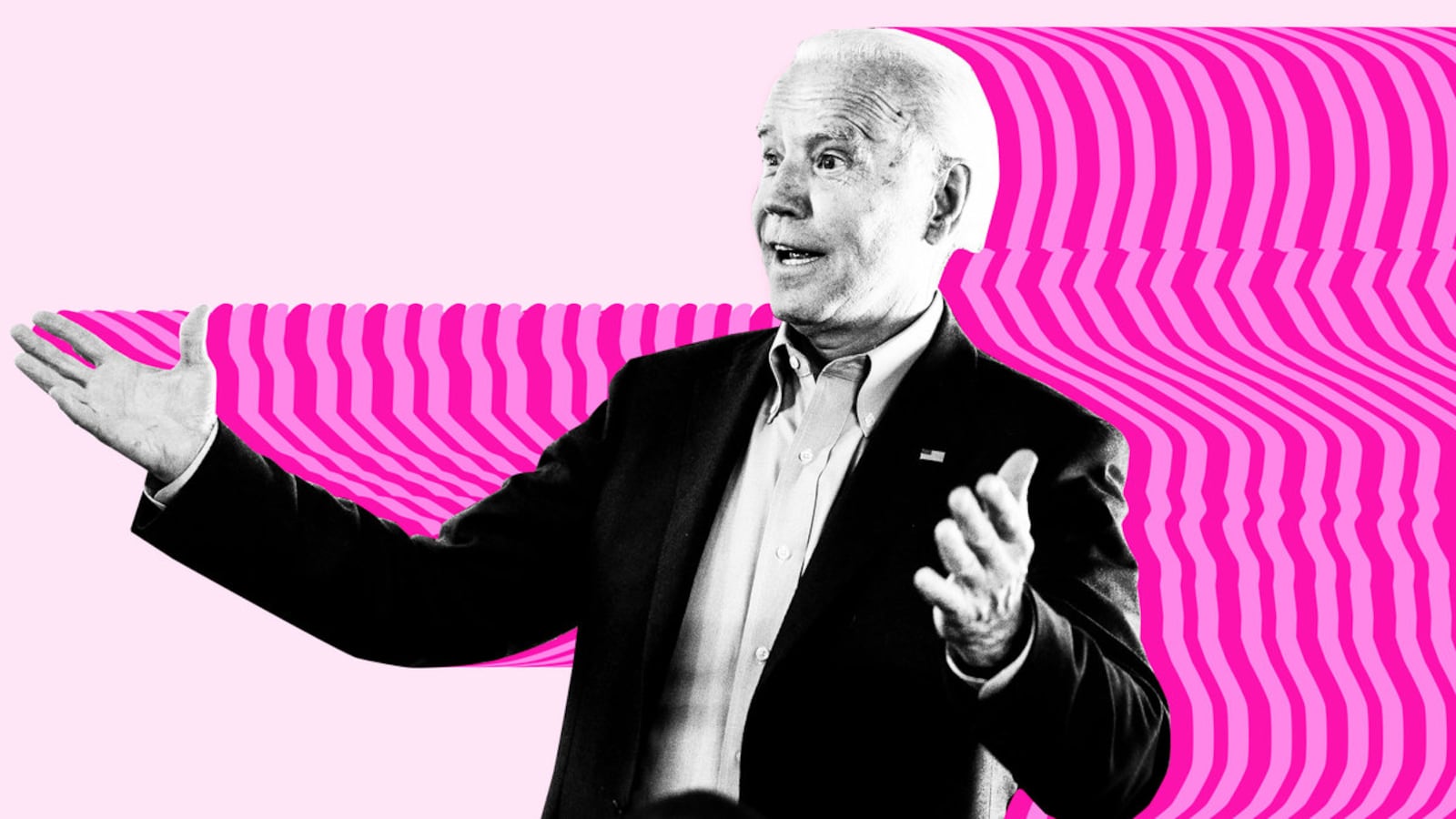When former Vice President Joe Biden pulled off the most unlikely come-from-behind victory in modern political history on Super Tuesday, his campaign staff breathed a tentative sigh of relief, and not only because Biden now stood a decent chance of capturing the Democratic presidential nomination. These staffers also felt that victory might provide an opportunity to replace some senior campaign officials who had helped steer the campaign so close to the rocks.
But that cull never happened. The “reshuffle,” campaign code for the unceremonious dumping of key staffers in the hopes of steering the ship in a better direction, was actually just… a reshuffle. After a trio of poor performances in the early voting states of Iowa, New Hampshire and Nevada, plus campaign coffers that verged on bone dry, Biden handed the campaign’s reins over to Obama veteran Jennifer O’Malley Dillon and shifted Greg Schultz, his first campaign manager, into “organizational planning for the general election.” Unofficial interim manager Anita Dunn was moved back to running strategy for the campaign.
Biden’s reorganization efforts, which kept long-trusted staffers in key positions, albeit with new and sometimes reduced duties, speaks to an underexplored aspect of the former vice president’s management style that’s common knowledge among former staffers across two branches of government and countless campaigns: He really, really doesn’t like to fire people.
The dynamic sets him far apart from from other high-ranking Capitol Hill bosses—and doubly so with President Donald Trump, who rose to fame by pretending to fire people on his reality television show and whose management style of stoking inter-staff tensions has often turned the Oval Office into a Thunderdome.
Interviews with more than a dozen current and former Biden staffers spanning his career as a U.S. senator, two-term vice president, and presumptive Democratic presidential nominee paint the portrait of a deeply involved boss who seeks out highly talented staffers and holds them to a commensurately high standard. But when those employees fall short, current and former staffers told The Daily Beast, Biden nearly always used the mistake as a chance to build a stronger staff—and a stronger relationship with staff.
“If you ever made a mistake, it was kind of like dealing with your dad,” said Brian Cunningham, who worked as a staff assistant in Biden’s Senate office for three years. “It hurts more when you know you’ve disappointed him as opposed to, you know, getting yelled at for making a mistake.”
Almost every staffer The Daily Beast spoke with had their own examples of moments when, had they been working in a less tolerant principal’s office, they might have been showed the door. When then-Senator Biden was invited to appear on Larry King Live to speak on the potential impeachment trial of President Bill Clinton in 1998, for example, Margaret Aitken thought that it sounded like a perfect opportunity for the senator and adjunct constitutional law professor to inform the American people about a process that hadn’t occurred in more than a century.
“We weren’t doing a lot of interviews about the situation, but this was a more of a specific constitutional look at impeachment, something that he knew a lot about,” Aitken, who had only started as Biden’s press secretary a few months before, recalled to The Daily Beast. “So he agreed to do it.”
But when Biden and Aitken crowded into a television studio in Wilmington, Delaware, to record the hit, the conversation quickly veered in a more tabloid-y direction, eventually settling on the famous photograph of the first family frostily marching toward Marine One following the president’s admission of an extramarital affair.
“And I heard these words come from Joe Biden’s mouth: ‘I don’t know, Larry, I guess they love each other—I’m not really an expert on their relationship,’” Aitken said. “And I started to sweat, right? I’m thinking, ‘Oh my God, I’m getting fired.’”
After the television hit wrapped, Aitken apologized to Biden for not finding out who else would be on the panel with the senator—a Vanity Fair reporter should have been the tip-off that the topline wouldn’t be the details of constitutional law—almost positive that she was about to lose her job.
“And he said, ‘Well, you won’t make that mistake again.’ And that was it,” Aitken said. “And I never made that mistake again.”
Louisa Terrell, who worked for Biden in different capacities for two decades including as deputy chief of staff from 2001 to 2006, described an incident early in her career at the Senate Judiciary Committee when Biden turned to her to ask her about the cost of an amendment that they were considering.
She didn’t know, she hadn’t calculated it, and she still remembers the feeling of admitting it to Biden.
“He said, ‘All right, how do we fix this?’” she said.
Biden, she said, instilled in all of his staff that it was better to just be truthful.
“Don’t lie,” Terrell said. “Say what you don’t know.”
Shailagh Murray, who worked as deputy chief of staff and communications director in the vice president’s office, said Biden put it to her like this: “If you don’t know the answer, that’s fine, just tell me. But if you don’t know and give me the wrong answer I’m going to fire you.”
“His standards are super high and we worked hard because we had to,” she said. “We wanted to get it right.”
That management style of keeping top figures within his circle of trust rather than casting them out in the dramatic fashion of the current Oval Office occupant, combined with his famously empathetic nature, staffers told The Daily Beast, has helped foster a tight-knit community of longtime employees who have stayed in Biden’s orbit for years or even decades.
“We had people retire from the office—like, that’s pretty rare,” said Aitken, who served as Biden’s press secretary for seven years after the Larry King Live incident, itself a long tenure on Capitol Hill. “He finds people that are experts in the field, whatever that is, whether it’s a Supreme Court nomination, whether it has something to do with, you know, military structures dealing with the wars in Iraq, he finds people who are the best and he listens to them.”
Terrell McSweeny, who worked for Biden from 2005 to 2012, including as deputy chief of staff and policy director, said the network of staffers were also critical resources for each other as they were assuming new positions inside the office.
“You had to really make sure you understood his whole record, where he’d been on it and what he had said about [an issue] because he knew himself,” McSweeny said.
Women who worked for Biden described an extremely progressive workplace where working mothers were empowered. McSweeny said she was promoted while on maternity leave.
Biden’s reputation for trusting staff enough to give them the breathing room to do their jobs has engendered a fierce loyalty among his former staffers—but also frustrated the efforts of some newer members of his orbit to shake up a campaign that was until recently in dire straits.
“He’s not a great practitioner of politics, so he tends to stick close to home with the [same] people and then shuffling them around,” one former staffer said. That tendency, the ex-staffer said, made sense when Biden was in the Senate where he never had a tough race.
In a modern campaign, ideally built for speed rather than comfort, Biden’s thoughtful, family-style approach to management has led to some internal complaints that he has retained staffers by whom he has been ill-served—longtime Bidenworld figures who stand, redwood-like, crowding out the ideas of younger or newer staffers.
“Some younger members of Team Biden, or relatively newer members, do call them the ‘Council of Elders,’” one campaign staffer told The Daily Beast, corroborating a term that some fellow staff have directed toward certain members of the Biden old guard who are viewed as untouchable—in part due to Biden’s personal loyalty.
On the campaign trail, Biden’s default setting of making sure that his longtime friends and backers felt sufficiently honored was an occasional source of frustration by newer staffers who felt that Biden was putting old allies before his needs as a candidate.
In Iowa, for example, campaign brass refused to adjust the lineup of the former vice president’s stump speeches so that endorsers like former Gov. Tom Vilsack would introduce him, rather than speak after him. Letting Vilsack speak last at the events, Biden’s way of honoring his surrogate, often made his famously late-starting events drag on even later into the evening.
Biden’s reputation for building a close circle of trusted allies in his offices is due, in part, to the quality of staffers who were able to successfully rise through the ranks to work for a prominent and powerful committee chair.
“He commanded some really top-level staff that were highly poachable,” said a former Senate and White House aide. “But you didn’t see people hop around because Biden kept making it new and interesting, and that’s what kept people around.”
“He’d recruit ten All-Star first basemen and then figure out where to have them play," Murray said, crediting longtime aide Ted Kaufman as having coined a phrase that’s still popular in Bidenworld.
But Biden is, first and foremost, an empath, staffers said—numerous former staffers told The Daily Beast that he and his wife, Jill, were the first people to congratulate them on the birth of a child or to console them after a family illness, often years after they had left his office. During his years as vice president, several staffers recalled the final Christmas party of the year was reserved for former staff and old friends from Delaware and Biden would stay up talking to them for hours.
“It’s those types of things that endear him to his staff,” said Elizabeth Alexander, who served in various communications roles in Biden’s Senate and vice presidential offices. “It’s not that he doesn’t fire anybody—it’s that people want to want to work for him for so long, and they come back to him when he asks, because of the type of boss he was, and is, but also the type of person he is. You don’t find that. It’s rare. And it’s real, too.”
Biden, too, staffers said, is the rare boss who understands the gravity of losing your job.
“Joe Biden, because of his humanity, does understand what it means to somebody that loses a job,” said one former Senate and White House aide. “The reason why we’re so loyal to him is because, one, he is challenging and rewarding to work for on an intellectual level, but also on an emotional, connective, compassionate level.”







